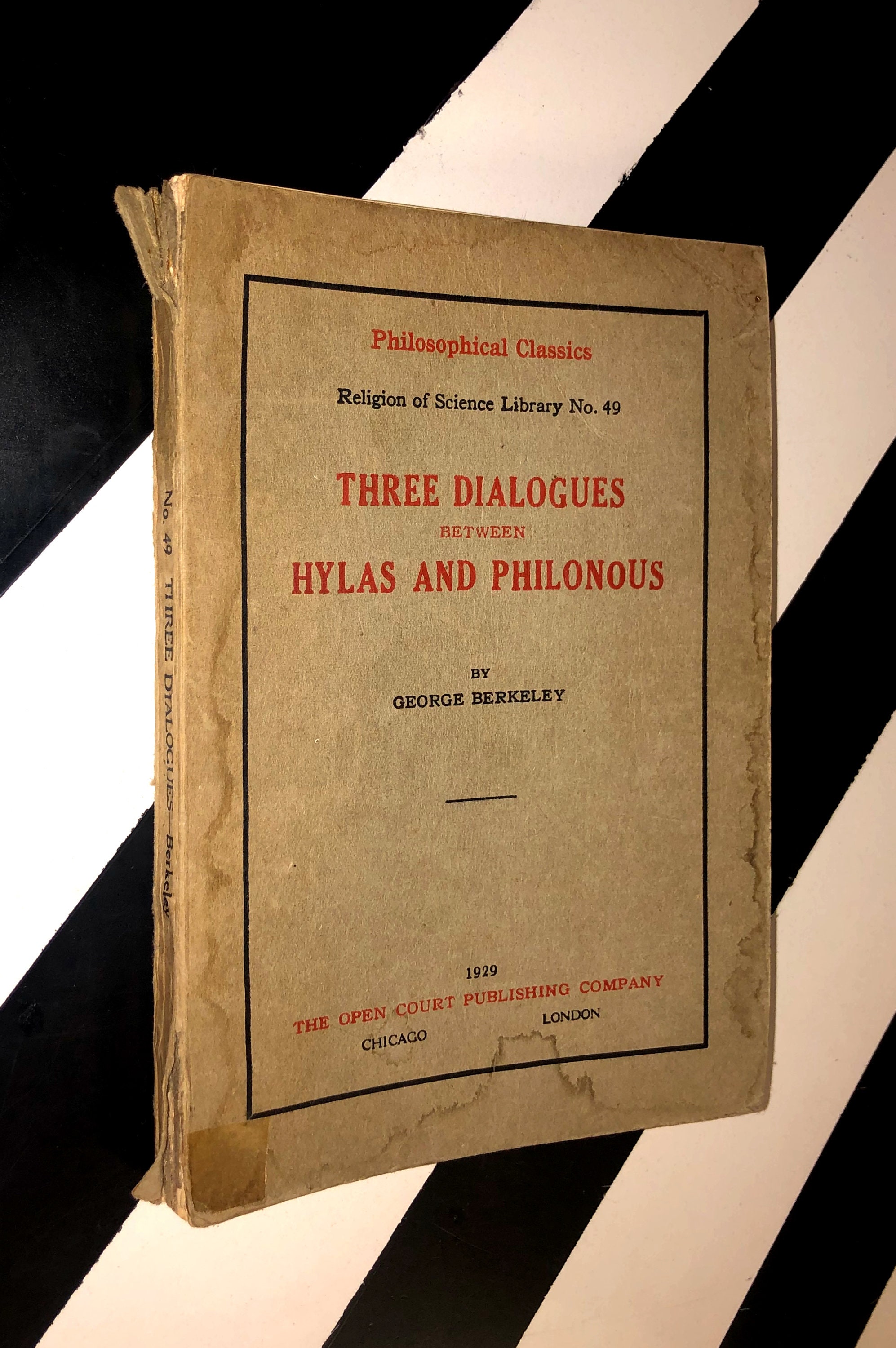
This however might be borne, if their paradoxes and scepticism did not draw after them some consequences of general disadvantage to mankind. I was considering the odd fate of those men who have in all ages, through an affectation of being distinguished from the vulgar, or some unaccountable turn of thought, pretended either to believe nothing at all, or to believe the most extravagant things in the world. With all my heart, it is what I should have requested myself if you had not prevented me. It is true, I was, and shall be obliged to you if you will permit me to go on in the same vein not that I would by any means deprive myself of your company, for my thoughts always flow more easily in conversation with a friend, than when I am alone: but my request is, that you would suffer me to impart my reflexions to you. But I am afraid I interrupt your thoughts: for you seemed very intent on something. Can there be a pleasanter time of the day, or a more delightful season of the year? That purple sky, those wild but sweet notes of birds, the fragrant bloom upon the trees and flowers, the gentle influence of the rising sun, these and a thousand nameless beauties of nature inspire the soul with secret transports its faculties too being at this time fresh and lively, are fit for those meditations, which the solitude of a garden and tranquillity of the morning naturally dispose us to. It happened well, to let you see what innocent and agreeable pleasures you lose every morning. It is indeed something unusual but my thoughts were so taken up with a subject I was discoursing of last night, that finding I could not sleep, I resolved to rise and take a turn in the garden. Good morrow, Hylas: I did not expect to find you abroad so early.


Thus, a philosophical battle of wit begins.PHILONOUS.

namely, that there is no such thing as material substance in the world." Philonous argues that it is actually Hylas who is the skeptic and that he can prove it. Philonous translates as "lover of mind." In The First Dialogue, Hylas expresses his disdain for skepticism, adding that he has heard Philonous to have "maintained the most extravagant opinion. A Hylas is featured in Greek mythology and the name Hylas is derived from an ancient Greek word for "matter" which Hylas argues for in the dialogues.

Download cover art Download CD case insert Three Dialogues between Hylas and Philonousīerkeley uses Hylas as his primary contemporary philosophical adversary, John Locke.


 0 kommentar(er)
0 kommentar(er)
